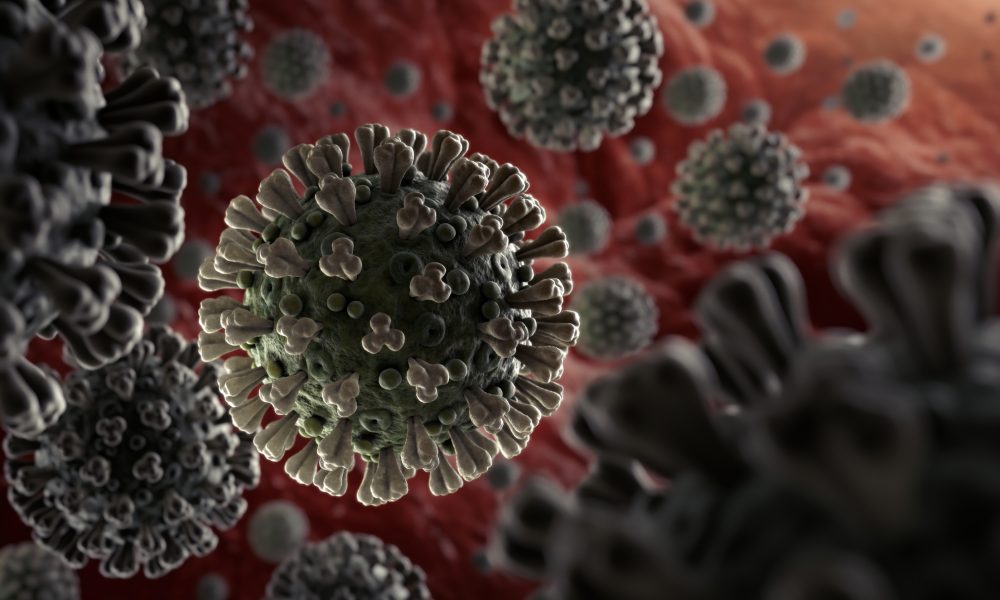
Coronavirus: All You Need To Know About This New Outbreak & How You Can Protect Yourself

The outbreak of the new coronavirus disease (COVID-19) has tormented us in the past months. It was initially detected in China and is now in other continents except Antarctica. In the United States, more than 2 million people are now infected, and there are over 100,000 deaths. Let’s now try to know more about this deadly virus and how we can keep ourselves from being part of the growing statistics.
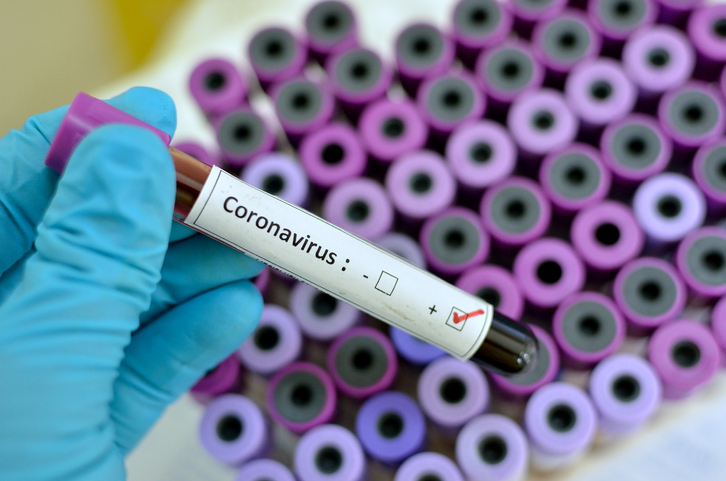
Blood sample with respiratory coronavirus positive
What is COVID-19?
Coronavirus, a family of viruses common in animals and humans, is responsible for illnesses that can range from common colds to severe pneumonia. It is spread from human to human by droplets released when the infected coughs or sneezes. You can get infected if the virus enters your body through your eyes, nose, or mouth. Experts also speculate that touching surfaces contaminated with virus-carrying droplets can infect you if you then touch your eyes, nose, or mouth.
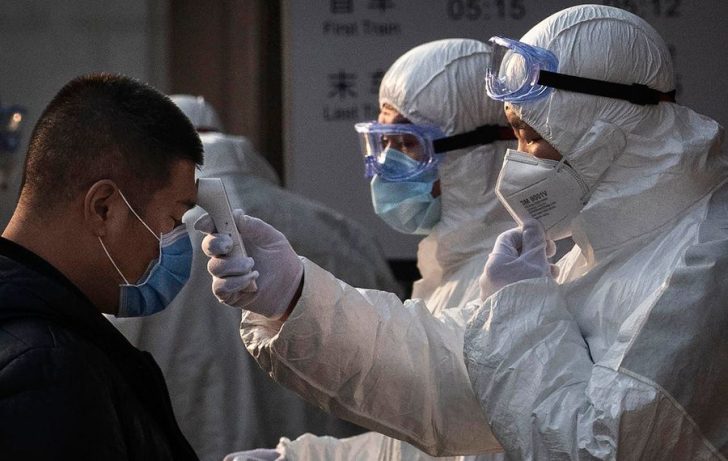
How do you know if you’ve been contaminated?
Within two to 14 days after you’ve been exposed, symptoms may arise ranging from:
- Coughing
- Fever
- Chills
- Difficulty breathing or shortness of breath
- Muscle pain
- Sore throat
- Nausea
- Diarrhea
- Rashes
- Recent loss of either taste or smell
Most of those who catch the virus often have mild symptoms and can heal at home. However, those at the age of 50 above and those who have pre-existing illnesses seem to have a higher risk of getting seriously infected, leading to pneumonia and difficulty in breathing. Kids may also show symptoms, but their illness is typically mild.
Nonetheless, the best way to verify if somebody has the coronavirus is through a swab test. There have already been efforts to make testing readily available in U.S. hospitals and healthcare facilities, so we can expect to see a rise in the number of COVID-19 cases being reported.
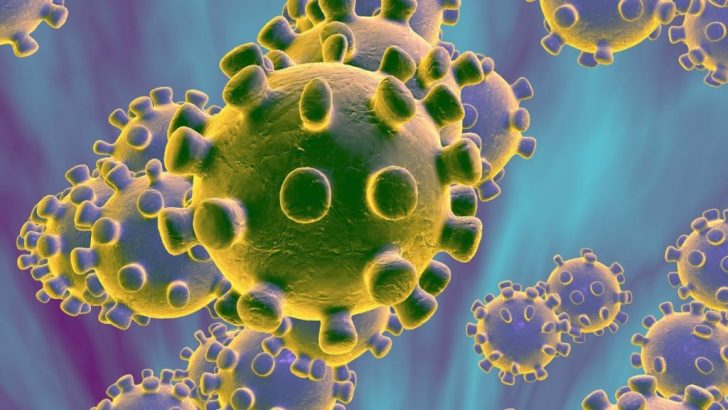
Prevention is priority
To help alleviate symptoms, someone infected with the coronavirus should immediately get supportive care from rest, fluids, to fever control. In terms of critical cases, treatment must include care to maintain vital organ functions.
Still, the most helpful approach to protecting yourself against COVID-19 and other upper respiratory infections is to practice good hygiene. Just do the following:
- Wash both hands thoroughly with soap and water, or use an alcohol-based hand sanitizer.
- Properly cover nose and mouth with either a tissue or your sleeve when coughing or sneezing.
- Stay home if you don’t feel good.
- Wear a cloth face mask in public places, primarily where it’s hard to keep about 6 feet of distance between you and other people because those with the virus could exhibit mild or no symptoms at all.
- Sanitize surfaces that are commonly touched, like doorknobs.
- Avoid close contact with the sick.
- Avoid touching your face to limit the spread from your hands.
- Follow travel guidelines from the CDC.
If you think you’ve caught the coronavirus, call your healthcare provider. They’ll inquire about your symptoms and recent travel. After that, they’ll be able to suggest the next steps you should take.
More in Anti-Aging
-
`
Jennifer Aniston’s Timeless Tips for Health and Youthfulness
Iconic Hollywood actress Jennifer Aniston has long been admired for her acting prowess and seemingly ageless beauty and vitality. Now in...
November 22, 2023 -
`
Unleash Your Entrepreneurial Drive: 5 Strategies for Self-Motivation
5. Have an Undying Passion Passion is the driving force behind the world’s most successful entrepreneurs. Self-motivation becomes second nature when...
November 19, 2023 -
`
How to Go Vegan – The Right Way!
The vegan lifestyle has seen a significant surge in popularity lately, and rightly so. Embracing veganism not only fosters personal health...
November 12, 2023 -
`
7 Eye-Opening Reasons to Drink More Water
Water is frequently hailed as the quintessential elixir for life, and rightfully so. Constituting approximately 60% of our total body weight,...
November 1, 2023 -
`
Drake’s Workout Regimen: How the Canadian Rapper Stays Fit
The lights dim, the stage is set, and the crowd’s anticipation is palpable. When the beat drops, there is one Canadian...
October 24, 2023 -
`
Why Six-Figure Family Holidays Are Becoming the New Normal
In the panoramic landscape of the modern travel scene, a particularly glittering trend is emerging, akin to finding a diamond the...
October 21, 2023 -
`
Foods With High Water Content
Water is the elixir of life, and staying adequately hydrated is crucial for maintaining our health and well-being. While sipping on...
October 15, 2023 -
`
The Impact of Wearable Technologies in Health Research
In recent years, wearable technologies have emerged as a powerful tool in health research, revolutionizing how we collect and analyze data...
October 3, 2023 -
`
How Celebrities Stay Fit? Secrets of Chris Pratt, Jennifer Lopez & More
The glitz and glamor of Hollywood may make it seem impossible for celebrities to maintain an enviable physique. But it is...
September 29, 2023











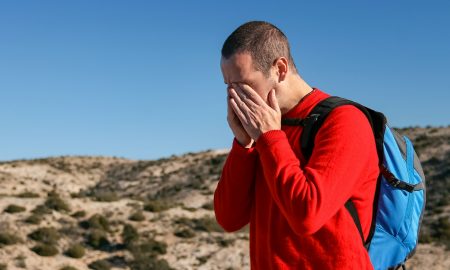



You must be logged in to post a comment Login